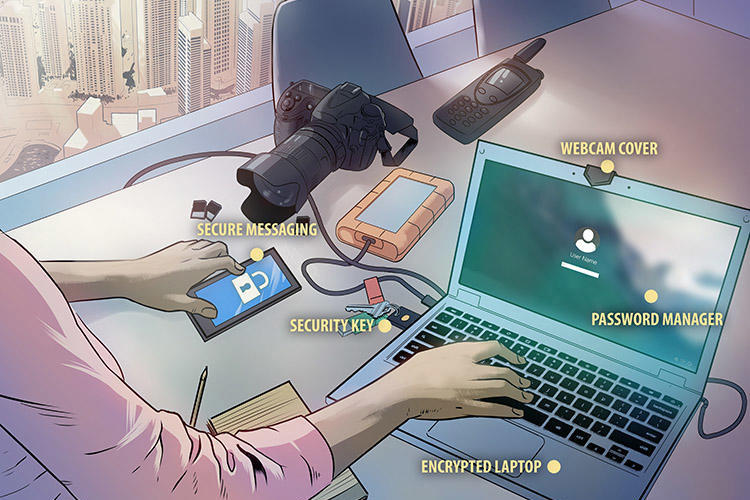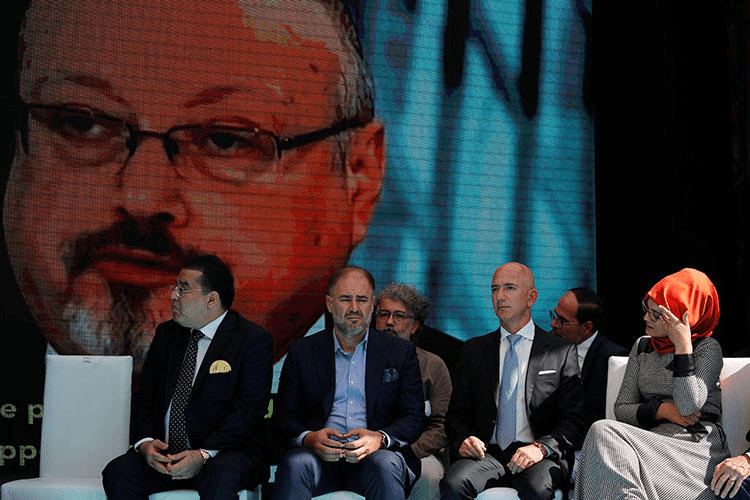The Torch is a weekly newsletter from the Committee to Protect Journalists that brings you the latest press freedom and journalist safety news from around the world. Subscribe here.
On Thursday, CPJ joined U.N. human rights experts in calling for an investigation into the alleged Saudi hacking of Jeff Bezos, owner of The Washington Post and CEO of Amazon. Agnes Callamard, U.N. special rapporteur on summary executions and extrajudicial killings, and David Kaye, U.N. special rapporteur on freedom of expression, called the alleged hacking “an effort to influence, if not silence, The Washington Post‘s reporting on Saudi Arabia,” and noted that case was relevant to allegations that Crown Prince Mohammed bin Salman was involved in the 2018 murder of Washington Post columnist Jamal Khashoggi.
CPJ produced a video explainer of the hacking allegations and Khashoggi case.
Brazil’s Federal Public Prosecutor charged journalist Glenn Greenwald, co-founding editor of The Intercept Brasil, with multiple crimes, including criminal association and invasion of an electronic device. CPJ called the charges a “disproportionate abuse of power by Brazilian authorities [that] poses a threat to any investigative journalist,” and called on prosecutors to drop them.
In Lebanon, authorities detained Nicholas Frakes, a U.S. national and freelance reporter, during protests on January 19 and released him without charge two days later. At least two other journalists were detained and several others were injured while covering protests in Beirut earlier in this month. Journalists reporting on the protests should consult CPJ Emergencies’ latest safety advisory.
Global press freedom updates:
- Indonesian immigration officials detained a U.S. environmental journalist for allegedly using an improper visa
- Qatar changed its penal code to make the publication or sharing of “false news” punishable by up to five years in prison
- Far-right demonstrators assaulted reporter Thomas Jacobi in Greece
- Multiple journalists have been beaten and detained while covering protests across India since December 2019
- CPJ and the First Amendment Coalition ask San Francisco mayor to protect journalist freedoms
- CPJ and 57 news organizations ask the U.S. Senate to rethink press restrictions during impeachment
Spotlight:

Do you have an Amazon Alexa-enabled device? Enable CPJ's flash briefing skill to stay up to date with the latest press freedom news from around the world.
